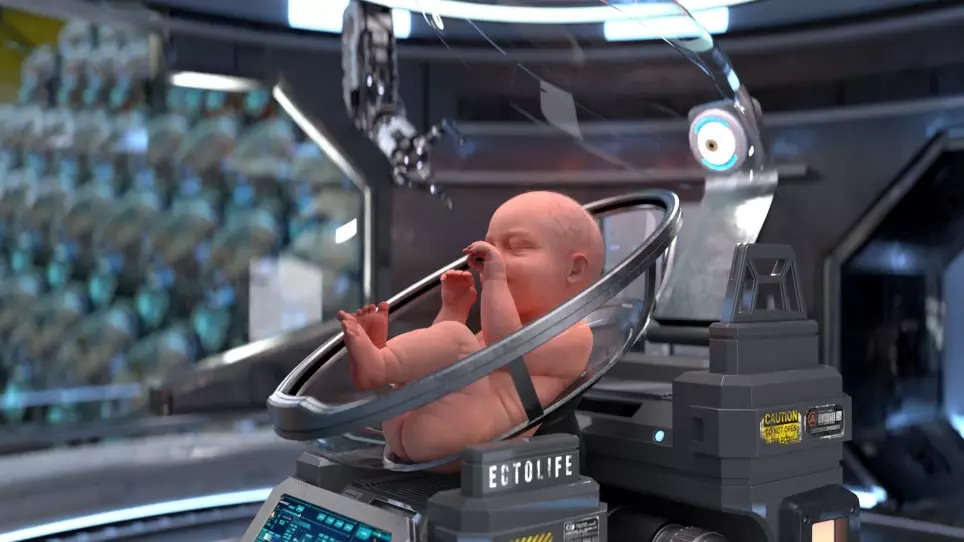
How a birth pod will look. (Photo Credits: Hashem Al-Ghaili / SWNS/via Metro.co.uk)
In 1978, Britain’s Louise Brown became the world’s first IVF baby. In-Vitro Fertilisation (IVF) meant that the father (the male’s) sperm and mother’s (the female’s ) egg were extracted from their respective bodies and fertilised in a petri dish (or laboratory setup). the womb was then planted into a female’s womb either the biological mother of the embryo) or a surrogate and the baby was born in due course.
The gene editing will be done based on the CRISPR Cas-9 technology which is not new to the world.
World’s first artificial womb facility
EctoLife founder Ghaili says his plan is based on over fifty years of groundbreaking scientific research.
Ghaili says, “EctoLife artificial womb is designed to alleviate human suffering and reduce the chances of C-sections.
“With EctoLife, premature births and C-sections will be a thing of the past.’
So when will this facility become functional?
“In terms of timeframe, it really depends on the ethical guidelines. Right now, research on human embryos is not allowed beyond 14 days,” Ghaili told Metro.co.uk.
“After 14 days, embryos must be destroyed due to ethical concerns.
“If these ethical restrictions are relaxed, I give it 10 to 15 years before EctoLife becomes widely used everywhere.
“Add to that five years of public awareness and education to help people become more receptive to the technology,” Hashem says, highlighting that the tech is available already, and only ethical constraints are holding the concept back from reality.
About the artificial womb:
EctoLife allows your baby to develop in an infection-free environment. Ghaili says every pod is designed to replicate the exact conditions that exist inside the mother’s uterus. A single building can incubate up to 30,000 lab-grown babies per year.
A smart digital screen will enable parents or employees at Ectolife to see real-time data on the developmental progress of the baby. The data can also be viewed via a phone app. The sensors on the pods can monitor the baby’s vital signs and project them on screen, including heartbeat, temperature, blood pressure, breathing rate, and oxygen saturation.
Each group of pods is connected to two central bioreactors. One bioreactor will contain a liquid solution that serves as the amniotic fluid that surrounds babies in the mother’s uterus. The second bioreactor is designed to eliminate any waste products produced by the babies, which are transferred by an artificial umbilical cord.
And how is the baby born?
When the baby has reached full term, whenever the parents wish, the birth process is done with the push of a button. After discharging the amniotic fluid from the artificial womb, you will be able to easily remove your baby from the growth pod.
The brain behind this idea – biotechnologist Hashem Al-Ghaili says it offers a solution for women who had their uterus surgically removed due to cancer or other complications, and it could also help countries that are suffering from severe population decline, including Japan, Bulgaria, South Korea.
But a poll right under the Metro.co.uk report on whether this is a good idea, almost 80 percent voted against it and wanted nature to be allowed to run its own course.
Disclaimer: Tips and suggestions mentioned in the article are for general information purposes only and should not be construed as professional medical advice. Always consult your doctor or a dietician before starting any fitness programme or making any changes to your diet, exercise, and medicine regimen.





